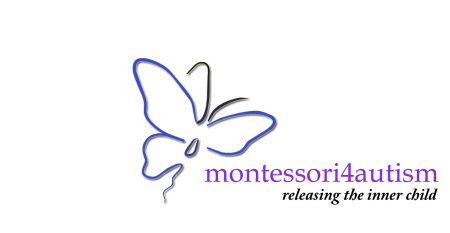School Quest
School Quest
Ivisited many public and private school programs in my exhaustive search for an elementary school that would be appropriate for my son. Eventually, I came to realize that none of them would be able to meet his needs because they were intrinsically centered around group instruction, with a standardized curriculum and pace. My despair grew at not being able to find an appropriate placement, yet I did not want to default to home-schooling in part because it would not provide the right setting for development of social skills.
During my search, it gradually dawned on me that the educational methods of Dr. Maria Montessori might be particularly suitable for children like my son. In college, I had been exposed to Montessori Methodology as a formal part of my curriculum. Now, I was rediscovering Montessori’s model in a specific real-world context. I saw this educational approach as appropriate for ASD children in a striking variety of ways: an emphasis on concrete (as opposed to abstract) learning, an emphasis on practical living skills and problem solving, a low-stress and “homey” learning environment, respect for diversity of backgrounds, respect for individual learning preferences and abilities, use of mixed-age classrooms, etc. On the other hand, I knew well that children with autism require a lot of modeling, various levels of prompting, guidance and nudging, which at first glance seemed to be with odds with Montessori philosophy.
When I first visited several Montessori schools in my area, I was disappointed that they did not express interest but rather had reservations about enrolling an autistic child. Wasn’t Montessori supposed to be for everyone?
One Montessori school I visited had qualities that I particularly liked, including a natural setting, bright and spacious classrooms, enthusiastic parents, knowledgeable teachers, and a diverse student body. During the three visits I made to the school, I noted that the children seemed happy, content, very self-directed and able to move smoothly from one task to another. Classroom demeanor varied with age: the younger students (age 3 to 6) at the Children’s House were quiet, with each child working calmly and deliberately on their own project, whereas the Lower (age 6 to 9) and Upper (age 9 to 12) Elementary classrooms were a whirl of motion, conversations, arguments, deliberations, discussions, and presentations – an “organized chaos”. With the skill of a self-made behavioral analyst, I began to make a mental inventory of skills that these children displayed and came to the painful realization that my son did not compare favorably to them in many ways. I felt desperate rather than inspired.
During one of the visits, I joined the school tour given by the Director, who was passionate about Montessori philosophy and education. As we were moving from classroom to classroom, he neatly, and with great precision, described what all children are supposed to do at certain developmental stages (Montessori’s “planes of development”). I was trying hard to restrain my tears, because nothing, absolutely nothing at any of these stages applied to my son. At the end of the tour, the Director helped me with my coat and started asking me about my child. I blurted out some pleasantries, thanked him for the tour, and ran out to my car. There I cried for a long time, losing hope of ever finding the right school for my son.
Fortunately, as I began reading more and more about the deep roots of Montessori in special education, I started asking myself: “What if my son could actually learn those skills, what if he really could?!” I became possessed with this idea and ploughed through every article I could find on the internet and in print about the suitability of Montessori for special needs children. I became convinced that a Montessori educational approach meshes well with established therapies for ASD, and that it would be the closest match to my son’s needs and a logical extension of his therapeutic journey — to a more creative and independent level. Now, I had to convince the school Admissions Director of the same, and I started to craft a letter explaining why they should take a chance on my son. I also expressed hope that the school would not attach primary importance to the personal “interview” (a standard observation procedure at many Montessori schools), since its unfamiliar environment would undoubtedly put him at a disadvantage from the start. Instead, I asked if the school would be willing to observe him in his familiar kindergarten setting, either in real time or by reviewing a video recording of him during a typical day.
“Due to his diagnosis, David has some fundamental deficits which would not position him favorably among other applicants. Montessori schools are more likely to give preference to kids who exhibit the abilities to work independently, who are driven by discovery learning, and who can make frequent and adequate choices in their learning environment. For David, these skills are just emerging, and they need to be continually reinforced and turned into a life-long habit. In that regard, he does not just benefit from learning in a Montessori environment – he needs it critically to become a fully functional adult in a way that his typical peers do not.” (from my letter to school admissions)
We were fortunate that one of the Lower Elementary teachers, as well as a key person in administration had extensive backgrounds in special needs. They graciously agreed to observe my son at his kindergarten program and to meet with us to thoroughly understand his abilities and challenges. We were impressed with their thoughtful approach and respectful treatment. When we received a letter informing us of our son’s admission, we anticipated this to be a life changing event for him and our family.
